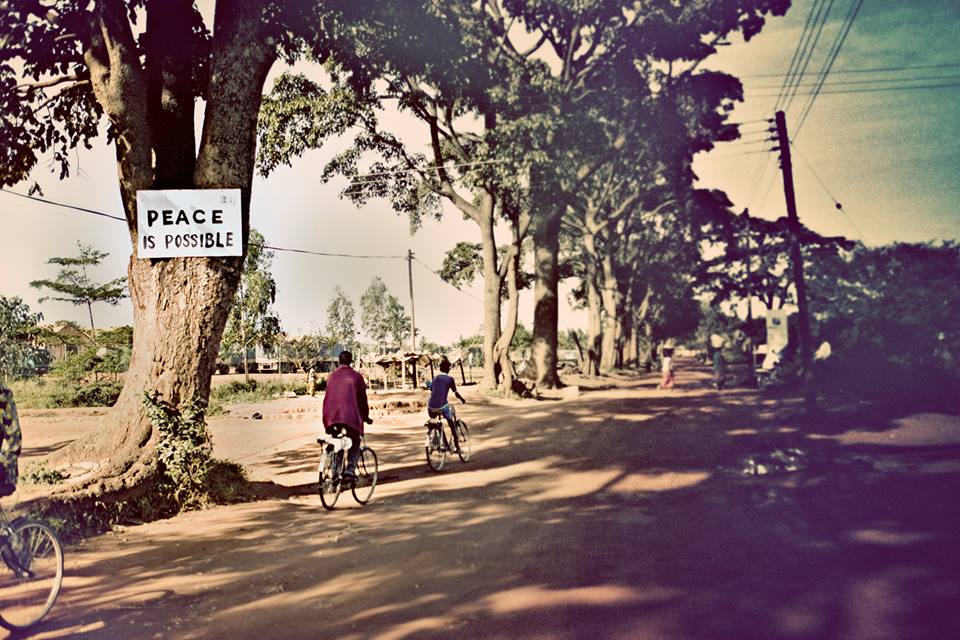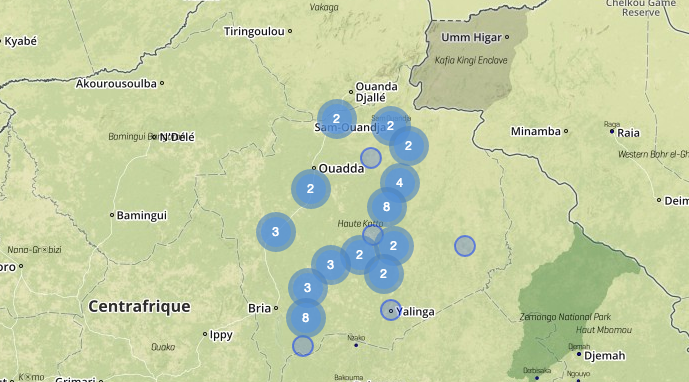Without safety, nothing else is possible. Many of us take our own safety and the safety of our communities for granted, but for thousands of children and families in forgotten and neglected corners of world, that isn’t an option.
HELP PROTECT FAMILIES FROM VIOLENCE. GIVE TO SUPPORT OUR PROGRAMS TODAY.
Isolated communities, like many in the Central African Republic (CAR) and DR Congo (DRC), often aren’t able to rely on their governments or a police force to keep them safe. Without basic communication systems, most don’t even have a way to call for help when they need it. As a result, Central African families in remote areas become targets for violent armed groups like Joseph Kony’s Lord’s Resistance Army (LRA) and aggressive wildlife poachers. Constant insecurity causes these communities to become even more isolated — cutting them off from infrastructure, education, and economic opportunities.
That is why, at Invisible Children, we focus on ensuring that isolated and vulnerable communities are protected by developing and supporting innovative, community-led programs. Here is an example of exactly how they work:
Our Early Warning Network uses a series of hand-held, high frequency radios to connect more than 60 isolated communities to one another and to the outside world. For the first time, communities in the Network are able to share real-time information about violent activity with others around them and with the security forces and international institutions responsible for protecting them.
Last Fall, we expanded our Early Warning Network and other protection programs to three new communities in the Haute-Kotto region of CAR. This is one of the most remote and isolated regions of CAR, making the families who live there extremely vulnerable to violent attacks. By January of this year, just a couple of months after they received the tools necessary to communicate with the outside world, these three communities were reporting on a surge of LRA attacks and abductions in the area. Without their inclusion in the Network, we likely would still be unaware of these attacks today.
Using our LRA Crisis Tracker platform, our team was able to map and analyze information from these reports and was the first to identify an alarming trend: the LRA is again abducting young boys in large numbers. In February, through interviews with two recent LRA-escapees, our team was also able to confirm that, in December of 2015, Kony himself gave orders to abduct and indoctrinate 60 young boys to become soldiers.
Over the following several weeks, our advocacy team in Washington, DC shared all of this information with international officials and published a security report that led several major international news outlets to highlight this spike in child abductions. By mid-March, the head of the UN Peacekeeping mission in CAR announced increased security patrols and the deployment of new peacekeepers to communities experiencing LRA violence. This was only possible because communities had the tools they needed and were empowered to communicate about their own insecurity.
Today, the communities who initially reported this surge in LRA violence in Haute-Kotto,and many more around them, continue to face violence at the hands of the LRA, but also at the hands of countless other armed groups. The information they are able to share and receive through the Early Warning Network is already making them safer, but there is so much more we can do.


Think people should hear about this?